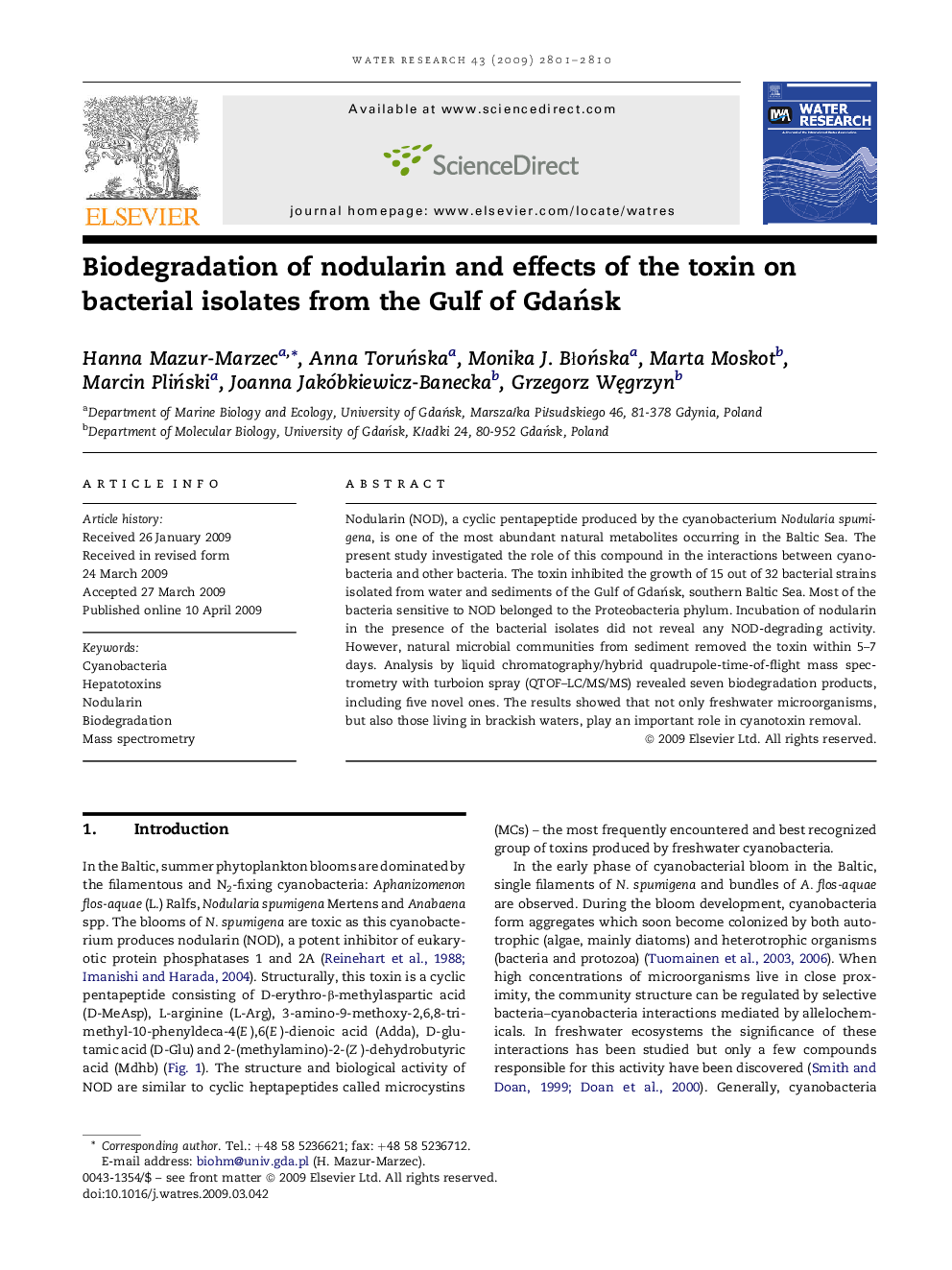| Article ID | Journal | Published Year | Pages | File Type |
|---|---|---|---|---|
| 4484649 | Water Research | 2009 | 10 Pages |
Nodularin (NOD), a cyclic pentapeptide produced by the cyanobacterium Nodularia spumigena, is one of the most abundant natural metabolites occurring in the Baltic Sea. The present study investigated the role of this compound in the interactions between cyanobacteria and other bacteria. The toxin inhibited the growth of 15 out of 32 bacterial strains isolated from water and sediments of the Gulf of Gdańsk, southern Baltic Sea. Most of the bacteria sensitive to NOD belonged to the Proteobacteria phylum. Incubation of nodularin in the presence of the bacterial isolates did not reveal any NOD-degrading activity. However, natural microbial communities from sediment removed the toxin within 5–7 days. Analysis by liquid chromatography/hybrid quadrupole-time-of-flight mass spectrometry with turboion spray (QTOF–LC/MS/MS) revealed seven biodegradation products, including five novel ones. The results showed that not only freshwater microorganisms, but also those living in brackish waters, play an important role in cyanotoxin removal.
